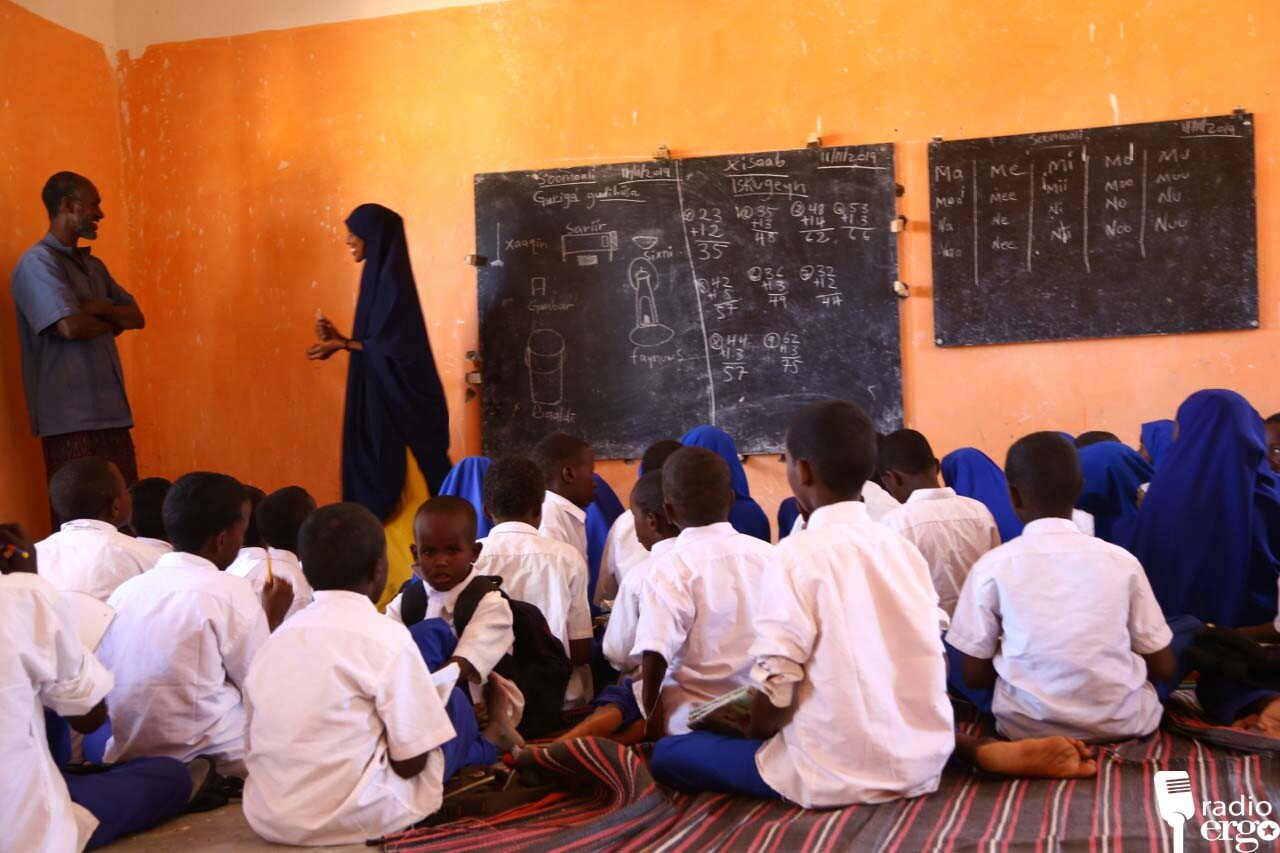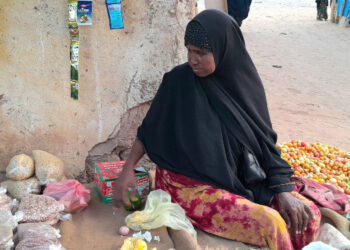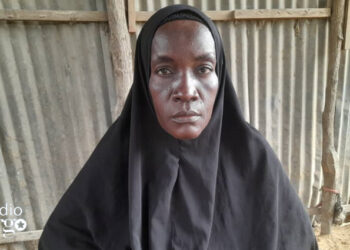(ERGO) – A stark choice faces 62-year-old Hawo Abdi Ahmed these days – whether to buy water or food for her family of seven on the pitiful earnings her husband brings back to their IDP camp home in the Somali capital Mogadishu.
“I have got just $1.5 in my phone,” she told Radio Ergo’s local reporter. “Should I buy rice, or cooking oil, or water, or firewood? We don’t know what to do! There is hardship in this area and we pray for better times, the children could die of thirst, we could get sick if there isn’t any water to drink.”
The price of 20 litres of water shot up threefold to 6,000 Somali shillings when Hawo’s family arrived in Qanciye IDP camp in July, after abandoning their drought-shrivelled three-hectare farm some 20 kilometres outside Bardera in Gedo region.
She told Radio Ergo they now eat once a day instead of two. Her husband works four days a week in a quarry. When they can, they buy 10 litres of water for 3,000 shillings just for cooking and drinking. Washing or cleaning is beyond their budget.
Radio Ergo’s reporter met Hawo in her small shelter at dusk as she was preparing to cook some rice.
“This is the first time we have lit our fire since morning, and the reason is that we are destitute. We left our farm behind; we are living in a dire situation and we pray to God. I don’t even have enough water for ablutions, the water from the boreholes has become so expensive,” she said.
Qanciye, Burgaabo, and Darul-Salam IDP camps, home collectively to about 1,000 families, are among the worst affected by the high water prices in the city.
Habibo Salad Omar, 58, has been living in Burgaabo camp, Kahda district, for two years, and began buying water on credit from borehole owners in May.
“I am able to take the water on credit and I repay them when I get money I repay them back, sometimes I get help from other people to pay for the water,” said Habibo.
Habibo, a widow, has 11 children and washes clothes three times a week, earning $2 each time. Like the majority of the IDPs in the camp, they also eat only once a day.
Her biggest worry is the rising water prices and she has to use the water sparingly despite all their unmet needs.
“I use one of the jerry cans to wash clothes, I use another to cook, and whenever I leave my children with the water, I always find they have drunk all the rest,” she said.
Borehole operators blame the high cost of fuel needed to power the water pumps for the rising prices they are passing on to the IDP consumers. Mohamed Ali Hassan, a camp leader, said the Kahda district authority is working with aid organisations to construct wells for the IDP families.











